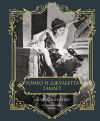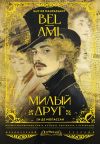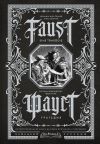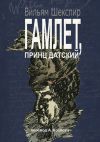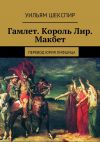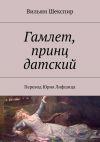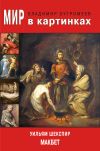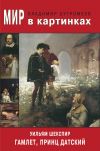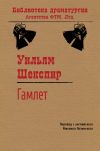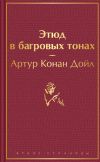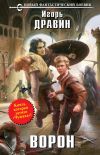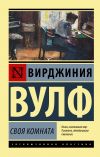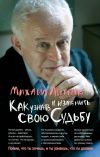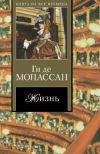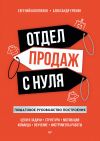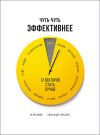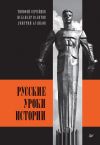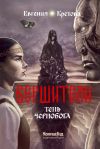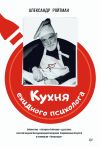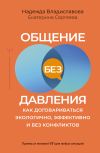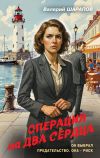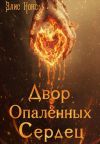Читать книгу "Hamlet. Macbeth / Гамлет. Макбет"
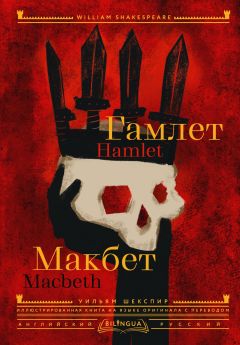
Автор книги: Уильям Шекспир
Жанр: Зарубежная драматургия, Зарубежная литература
Возрастные ограничения: 12+
сообщить о неприемлемом содержимом
Уильям Шекспир
Hamlet. Macbeth / Гамлет. Макбет
© ООО «Издательство АСТ», 2024

Hamlet

Dramatis Person
Hamlet, Prince of Denmark.
Claudius, King of Denmark, Hamlet's uncle.
The Ghost of the late king, Hamlet's father.
Gertrude, the Queen, Hamlet's mother, now wife of Claudius.
Polonius, Lord Chamberlain.
Laertes, Son to Polonius.
Ophelia, Daughter to Polonius.
Horatio, Friend to Hamlet.
Fortinbras, Prince of Norway.
Voltemand, Cornelius, Rosencrantz, Guildenstern, Osric – Courtiers.
Marcellus, Barnardo – Officers.
Francisco, a Soldier.
Reynaldo, Servant to Polonius.
Players.
A Gentleman, Courtier.
A Priest.
Two Clowns, Grave-diggers.
A Captain.
English Ambassadors.
Lords, Ladies, Officers, Soldiers, Sailors, Messengers, and Attendants.
Scene. Elsinore.
Act I
Scene IElsinore. A platform before the Castle
Enter Francisco and Barnardo, two sentinels
Barnardo
Who's there?
Francisco
Nay, answer me. Stand and unfold yourself.
Barnardo
Long live the King!
Francisco
Barnardo?
Barnardo
He.
Francisco
You come most carefully upon your hour.
Barnardo
'Tis now struck twelve. Get thee to bed, Francisco.
Francisco
For this relief much thanks. 'Tis bitter cold,
And I am sick at heart.
Barnardo
Have you had quiet guard?
Francisco
Not a mouse stirring.
Barnardo
Well, good night.
If you do meet Horatio and Marcellus,
The rivals of my watch, bid them make haste.
[Enter Horatio and Marcellus]
Francisco
I think I hear them. Stand, ho! Who is there?
Horatio
Friends to this ground.
Marcellus
And liegemen to the Dane.
Francisco
Give you good night.
Marcellus
O, farewell, honest soldier, who hath reliev'd you?
Francisco
Barnardo has my place. Give you good-night.
[Exit]
Marcellus
Holla, Barnardo!
Barnardo
Say, what, is Horatio there?
Horatio
A piece of him.
Barnardo
Welcome, Horatio. Welcome, good Marcellus.
Marcellus
What, has this thing appear'd again tonight?
Barnardo
I have seen nothing.
Marcellus
Horatio says 'tis but our fantasy,
And will not let belief take hold of him
Touching this dreaded sight, twice seen of us.
Therefore I have entreated him along
With us to watch the minutes of this night,
That if again this apparition come
He may approve our eyes and speak to it.
Horatio
Tush, tush, 'twill not appear.
Barnardo
Sit down awhile,
And let us once again assail your ears,
That are so fortified against our story,
What we two nights have seen.
Horatio
Well, sit we down,
And let us hear Barnardo speak of this.
Barnardo
Last night of all,
When yond same star that's westward from
the pole,
Had made his course t'illume that part of heaven
Where now it burns, Marcellus and myself,
The bell then beating one —
Marcellus
Peace, break thee off. Look where it comes again.
[Enter Ghost]
Barnardo
In the same figure, like the King that's dead.
Marcellus
Thou art a scholar; speak to it, Horatio.
Barnardo
Looks it not like the King? Mark it, Horatio.
Horatio
Most like. It harrows me with fear and wonder.
Barnardo
It would be spoke to.
Marcellus
Question it, Horatio.
Horatio
What art thou that usurp'st this time of night,
Together with that fair and warlike form
In which the majesty of buried Denmark
Did sometimes march? By heaven I charge
thee speak.
Marcellus
It is offended.
Barnardo
See, it stalks away.
Horatio
Stay! speak, speak! I charge thee speak!
[Exit Ghost]
Marcellus
'Tis gone, and will not answer.
Barnardo
How now, Horatio! You tremble and look pale.
Is not this something more than fantasy?
What think you on't?
Horatio
Before my God, I might not this believe
Without the sensible and true avouch
Of mine own eyes.
Marcellus
Is it not like the King?
Horatio
As thou art to thyself:
Such was the very armour he had on
When he th'ambitious Norway combated;
So frown'd he once, when in an angry parle
He smote the sledded Polacks on the ice.
'Tis strange.
Marcellus
Thus twice before, and jump at this dead hour,
With martial stalk hath he gone by our watch.
Horatio
In what particular thought to work I know not;
But in the gross and scope of my opinion,
This bodes some strange eruption to our state.
Marcellus
Good now, sit down, and tell me, he that knows,
Why this same strict and most observant watch
So nightly toils the subject of the land,
And why such daily cast of brazen cannon
And foreign mart for implements of war;
Why such impress of shipwrights,
whose sore task
Does not divide the Sunday from the week.
What might be toward, that this sweaty haste
Doth make the night joint-labourer with the day:
Who is't that can inform me?
Horatio
That can I;
At least, the whisper goes so. Our last King,
Whose image even but now appear'd to us,
Was, as you know, by Fortinbras of Norway,
Thereto prick'd on by a most emulate pride,
Dar'd to the combat; in which our valiant Hamlet,
For so this side of our known world esteem'd him,
Did slay this Fortinbras; who by a seal'd compact,
Well ratified by law and heraldry,
Did forfeit, with his life, all those his lands
Which he stood seiz'd of, to the conqueror;
Against the which, a moiety competent
Was gaged by our King; which had return'd
To the inheritance of Fortinbras,
Had he been vanquisher; as by the same cov'nant
And carriage of the article design'd,
His fell to Hamlet. Now, sir, young Fortinbras,
Of unimproved mettle, hot and full,
Hath in the skirts of Norway, here and there,
Shark'd up a list of lawless resolutes,
For food and diet, to some enterprise
That hath a stomach in't; which is no other,
As it doth well appear unto our state,
But to recover of us by strong hand
And terms compulsatory, those foresaid lands
So by his father lost. And this, I take it,
Is the main motive of our preparations,
The source of this our watch, and the chief head
Of this post-haste and rummage in the land.
Barnardo
I think it be no other but e'en so:
Well may it sort that this portentous figure
Comes armed through our watch so like the
King
That was and is the question of these wars.

Horatio
A mote it is to trouble the mind's eye.
In the most high and palmy state of Rome,
A little ere the mightiest Julius fell,
The graves stood tenantless and the sheeted dead
Did squeak and gibber in the Roman streets;
As stars with trains of fire and dews of blood,
Disasters in the sun; and the moist star,
Upon whose influence Neptune's empire stands,
Was sick almost to doomsday with eclipse.
And even the like precurse of fierce events,
As harbingers preceding still the fates
And prologue to the omen coming on,
Have heaven and earth together demonstrated
Unto our climatures and countrymen.
[Re-enter Ghost]
But, soft, behold! Lo, where it comes again!
I'll cross it, though it blast me. Stay, illusion!
If thou hast any sound, or use of voice,
Speak to me.
If there be any good thing to be done,
That may to thee do ease, and grace to me,
Speak to me.
If thou art privy to thy country's fate,
Which, happily, foreknowing may avoid,
O speak!
Or if thou hast uphoarded in thy life
Extorted treasure in the womb of earth,
For which, they say, you spirits oft walk in death,
Speak of it. Stay, and speak!
[The cock crows]
Stop it, Marcellus!
Marcellus
Shall I strike at it with my partisan?
Horatio
Do, if it will not stand.
Barnardo
'Tis here!
Horatio
'Tis here!
[Exit Ghost]
Marcellus
'Tis gone!
We do it wrong, being so majestical,
To offer it the show of violence,
For it is as the air, invulnerable,
And our vain blows malicious mockery.
Barnardo
It was about to speak, when the cock crew.
Horatio
And then it started, like a guilty thing
Upon a fearful summons. I have heard
The cock, that is the trumpet to the morn,
Doth with his lofty and shrill-sounding throat
Awake the god of day; and at his warning,
Whether in sea or fire, in earth or air,
Th'extravagant and erring spirit hies
To his confine. And of the truth herein
This present object made probation.
Marcellus
It faded on the crowing of the cock.
Some say that ever 'gainst that season comes
Wherein our Saviour's birth is celebrated,
The bird of dawning singeth all night long;
And then, they say, no spirit dare stir abroad,
The nights are wholesome, then no planets strike,
No fairy takes, nor witch hath power to charm;
So hallow'd and so gracious is the time.
Horatio
So have I heard, and do in part believe it.
But look, the morn in russet mantle clad,
Walks o'er the dew of yon high eastward hill.
Break we our watch up, and by my advice,
Let us impart what we have seen tonight
Unto young Hamlet; for upon my life,
This spirit, dumb to us, will speak to him.
Do you consent we shall acquaint him with it,
As needful in our loves, fitting our duty?
Marcellus
Let's do't, I pray, and I this morning know
Where we shall find him most conveniently.
[Exeunt]
Scene II
Elsinore. A room of state in the Castle
Enter Claudius King of Denmark, Gertrude the Queen, Hamlet, Polonius, Laertes, Voltemand, Cornelius, Lords and Attendant
King
Though yet of Hamlet our dear brother's death
The memory be green, and that it us befitted
To bear our hearts in grief, and our whole
kingdom
To be contracted in one brow of woe;
Yet so far hath discretion fought with nature
That we with wisest sorrow think on him,
Together with remembrance of ourselves.
Therefore our sometime sister, now our queen,
Th'imperial jointress to this warlike state,
Have we, as 'twere with a defeated joy,
With one auspicious and one dropping eye,
With mirth in funeral, and with dirge in
marriage,
In equal scale weighing delight and dole,
Taken to wife; nor have we herein barr'd
Your better wisdoms, which have freely gone
With this affair along. For all, our thanks.
Now follows, that you know young Fortinbras,
Holding a weak supposal of our worth,
Or thinking by our late dear brother's death
Our state to be disjoint and out of frame,
Colleagued with this dream of his advantage,
He hath not fail'd to pester us with message,
Importing the surrender of those lands
Lost by his father, with all bonds of law,
To our most valiant brother. So much for him.
Now for ourself and for this time of meeting:
Thus much the business is: we have here writ
To Norway, uncle of young Fortinbras,
Who, impotent and bed-rid, scarcely hears
Of this his nephew's purpose, to suppress
His further gait herein; in that the levies,
The lists, and full proportions are all made
Out of his subject: and we here dispatch
You, good Cornelius, and you, Voltemand,
For bearers of this greeting to old Norway,
Giving to you no further personal power
To business with the King, more than the scope
Of these dilated articles allow.
Farewell; and let your haste commend your
duty.
Cornelius and Voltemand
In that, and all things, will we show our duty.
King
We doubt it nothing: heartily farewell.
[Exeunt Voltemand and Cornelius]
And now, Laertes, what's the news with you?
You told us of some suit. What is't, Laertes?
You cannot speak of reason to the Dane,
And lose your voice. What wouldst thou beg,
Laertes,
That shall not be my offer, not thy asking?
The head is not more native to the heart,
The hand more instrumental to the mouth,
Than is the throne of Denmark to thy father.
What wouldst thou have, Laertes?
Laertes
Dread my lord,
Your leave and favour to return to France,
From whence though willingly I came to Denmark
To show my duty in your coronation;
Yet now I must confess, that duty done,
My thoughts and wishes bend again toward France,
And bow them to your gracious leave and pardon.
King
Have you your father's leave? What says Polonius?
Polonius
He hath, my lord, wrung from me my slow leave
By laboursome petition; and at last
Upon his will I seal'd my hard consent.
I do beseech you give him leave to go.
King
Take thy fair hour, Laertes; time be thine,
And thy best graces spend it at thy will!
But now, my cousin Hamlet, and my son —
Hamlet
[Aside]
A little more than kin, and less than kind.
King
How is it that the clouds still hang on you?
Hamlet
Not so, my lord, I am too much i' the sun.
Queen
Good Hamlet, cast thy nighted colour off,
And let thine eye look like a friend on Denmark.
Do not for ever with thy vailed lids
Seek for thy noble father in the dust.
Thou know'st 'tis common, all that lives must die,
Passing through nature to eternity.

Hamlet
Ay, madam, it is common.
Queen
If it be,
Why seems it so particular with thee?
Hamlet
Seems, madam! Nay, it is; I know not seems.
'Tis not alone my inky cloak, good mother,
Nor customary suits of solemn black,
Nor windy suspiration of forc'd breath,
No, nor the fruitful river in the eye,
Nor the dejected haviour of the visage,
Together with all forms, moods, shows of grief,
That can denote me truly. These indeed seem,
For they are actions that a man might play;
But I have that within which passeth show;
These but the trappings and the suits of woe.
King
'Tis sweet and commendable in your nature,
Hamlet,
To give these mourning duties to your father;
But you must know, your father lost a father,
That father lost, lost his, and the survivor bound
In filial obligation, for some term
To do obsequious sorrow. But to persevere
In obstinate condolement is a course
Of impious stubbornness. 'Tis unmanly grief,
It shows a will most incorrect to heaven,
A heart unfortified, a mind impatient,
An understanding simple and unschool'd;
For what we know must be, and is as common
As any the most vulgar thing to sense,
Why should we in our peevish opposition
Take it to heart? Fie, 'tis a fault to heaven,
A fault against the dead, a fault to nature,
To reason most absurd, whose common theme
Is death of fathers, and who still hath cried,
From the first corse till he that died today,
'This must be so.' We pray you throw to earth
This unprevailing woe, and think of us
As of a father; for let the world take note
You are the most immediate to our throne,
And with no less nobility of love
Than that which dearest father bears his son
Do I impart toward you. For your intent
In going back to school in Wittenberg,
It is most retrograde to our desire:
And we beseech you bend you to remain
Here in the cheer and comfort of our eye,
Our chiefest courtier, cousin, and our son.
Queen
Let not thy mother lose her prayers, Hamlet
I pray thee stay with us; go not to Wittenberg.
Hamlet
I shall in all my best obey you, madam.
King
Why, 'tis a loving and a fair reply.
Be as ourself in Denmark. Madam, come;
This gentle and unforc'd accord of Hamlet
Sits smiling to my heart; in grace whereof,
No jocund health that Denmark drinks today
But the great cannon to the clouds shall tell,
And the King's rouse the heaven shall
bruit again,
Re-speaking earthly thunder. Come away.
[Exeunt all but Hamlet]
Hamlet
O that this too too solid flesh would melt,
Thaw, and resolve itself into a dew!
Or that the Everlasting had not fix'd
His canon 'gainst self-slaughter. O God! O God!
How weary, stale, flat, and unprofitable
Seem to me all the uses of this world!
Fie on't! Oh fie! 'tis an unweeded garden
That grows to seed; things rank and gross
in nature
Possess it merely. That it should come to this!
But two months dead-nay, not so much,
not two:
So excellent a king; that was to this
Hyperion to a satyr; so loving to my mother,
That he might not beteem the winds of heaven
Visit her face too roughly. Heaven and earth!
Must I remember? Why, she would hang on him
As if increase of appetite had grown
By what it fed on; and yet, within a month —
Let me not think on't-Frailty, thy name
is woman!
A little month, or ere those shoes were old
With which she followed my poor father's body
Like Niobe, all tears.-Why she, even she —
O God! A beast that wants discourse of reason
Would have mourn'd longer, – married
with mine uncle,
My father's brother; but no more like my father
Than I to Hercules. Within a month,
Ere yet the salt of most unrighteous tears
Had left the flushing in her galled eyes,
She married. O most wicked speed, to post
With such dexterity to incestuous sheets!
It is not, nor it cannot come to good.
But break, my heart, for I must hold my tongue.
[Enter Horatio, Marcellus and Barnardo]
Horatio
Hail to your lordship!
Hamlet
I am glad to see you well:
Horatio, or I do forget myself.
Horatio
The same, my lord,
And your poor servant ever.
Hamlet
Sir, my good friend;
I'll change that name with you:
And what make you from Wittenberg, Horatio?
Marcellus?
Marcellus
My good lord.
Hamlet
I am very glad to see you.-Good even, sir. —
But what, in faith, make you from Wittenberg?
Horatio
A truant disposition, good my lord.
Hamlet
I would not hear your enemy say so;
Nor shall you do my ear that violence,
To make it truster of your own report
Against yourself. I know you are no truant.
But what is your affair in Elsinore?
We'll teach you to drink deep ere you depart.
Horatio
My lord, I came to see your father's funeral.
Hamlet
I prithee do not mock me, fellow-student.
I think it was to see my mother's wedding.
Horatio
Indeed, my lord, it follow'd hard upon.
Hamlet
Thrift, thrift, Horatio! The funeral bak'd meats
Did coldly furnish forth the marriage tables.
Would I had met my dearest foe in heaven
Or ever I had seen that day, Horatio
My father, – methinks I see my father.
Horatio
Where, my lord?
Hamlet
In my mind's eye, Horatio.
Horatio
I saw him once; he was a goodly king.
Hamlet
He was a man, take him for all in all,
I shall not look upon his like again.
Horatio
My lord, I think I saw him yesternight.
Hamlet
Saw? Who?
Horatio
My lord, the King your father.
Hamlet
The King my father!
Horatio
Season your admiration for a while
With an attent ear, till I may deliver
Upon the witness of these gentlemen
This marvel to you.
Hamlet
For God's love let me hear.
Horatio
Two nights together had these gentlemen,
Marcellus and Barnardo, on their watch
In the dead waste and middle of the night,
Been thus encounter'd. A figure like your father,
Armed at point exactly, cap-à-pie,
Appears before them, and with solemn march
Goes slow and stately by them: thrice he walk'd
By their oppress'd and fear-surprised eyes,
Within his truncheon's length; whilst they, distill'd
Almost to jelly with the act of fear,
Stand dumb, and speak not to him. This to me
In dreadful secrecy impart they did,
And I with them the third night kept the watch,
Where, as they had deliver'd, both in time,
Form of the thing, each word made true and good,
The apparition comes. I knew your father;
These hands are not more like.
Hamlet
But where was this?
Marcellus
My lord, upon the platform where we watch.
Hamlet
Did you not speak to it?
Horatio
My lord, I did;
But answer made it none: yet once methought
It lifted up it head, and did address
Itself to motion, like as it would speak.
But even then the morning cock crew loud,
And at the sound it shrunk in haste away,
And vanish'd from our sight.
Hamlet
'Tis very strange.
Horatio
As I do live, my honour'd lord, 'tis true;
And we did think it writ down in our duty
To let you know of it.
Hamlet
Indeed, indeed, sirs, but this troubles me.
Hold you the watch tonight?
Marcellus and Barnardo
We do, my lord.
Hamlet
Arm'd, say you?
Both
Arm'd, my lord.
Hamlet
From top to toe?
Both
My lord, from head to foot.
Hamlet
Then saw you not his face?
Horatio
O yes, my lord, he wore his beaver up.
Hamlet
What, look'd he frowningly?
Horatio
A countenance more in sorrow than in anger.
Hamlet
Pale, or red?
Horatio
Nay, very pale.
Hamlet
And fix'd his eyes upon you?
Horatio
Most constantly.
Hamlet
I would I had been there.
Horatio
It would have much amaz'd you.
Hamlet
Very like, very like. Stay'd it long?
Horatio
While one with moderate haste might tell
a hundred.
Marcellus and Barnardo
Longer, longer.
Horatio
Not when I saw't.
Hamlet
His beard was grizzled, no?
Horatio
It was, as I have seen it in his life,
A sable silver'd.
Hamlet
I will watch tonight;
Perchance 'twill walk again.
Horatio
I warrant you it will.
Hamlet
If it assume my noble father's person,
I'll speak to it, though hell itself should gape
And bid me hold my peace. I pray you all,
If you have hitherto conceal'd this sight,
Let it be tenable in your silence still;
And whatsoever else shall hap tonight,
Give it an understanding, but no tongue.
I will requite your loves. So, fare ye well.
Upon the platform 'twixt eleven and twelve,
I'll visit you.
All
Our duty to your honour.
Hamlet
Your loves, as mine to you: farewell.
[Exeunt Horatio, Marcellus and Barnardo]
My father's spirit in arms! All is not well;
I doubt some foul play: would the night
were come!
Till then sit still, my soul: foul deeds will rise,
Though all the earth o'erwhelm them, to men's
eyes.
[Exit]


